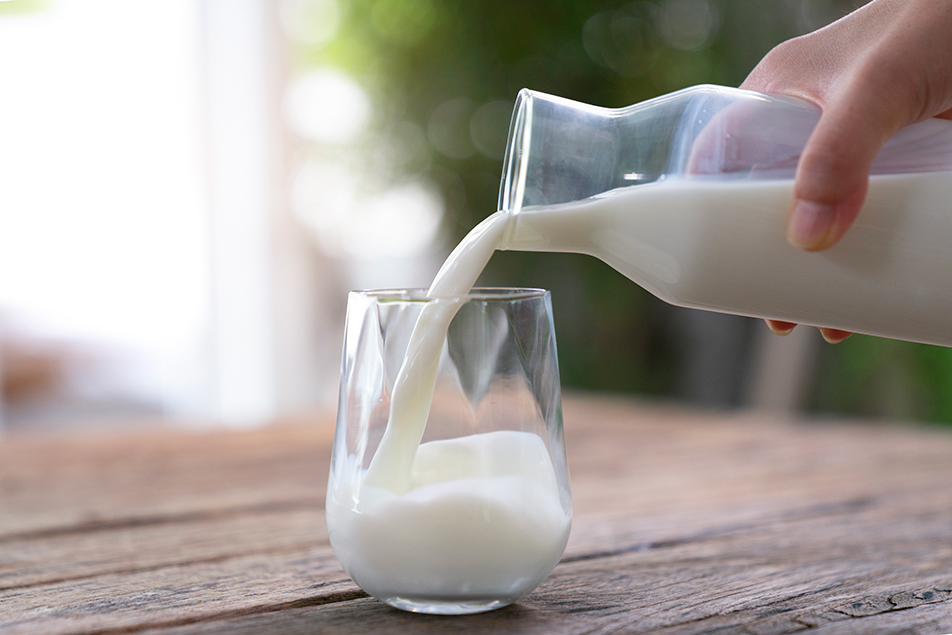
This post was written by Heather Willison, MSN, FNP-C, PPG – Allergy, Asthma & Immunology.
Do you experience abdominal pain and cramping after you eat ice cream? Or feel bloated and nauseous after drinking a glass of milk? I often see patients who come in assuming that they have an allergy to milk when in fact they are lactose intolerant. It’s important to understand the difference between an allergy and an intolerance so that you can receive proper care.
Milk allergy
A food allergy occurs when your immune system gets excited and overreacts when it encounters a specific food protein. This overreaction leads to an allergic reaction, with the symptoms varying in severity. A reaction may involve the skin (rash, hives, swelling), digestive system (nausea, bloating, diarrhea, vomiting), or in severe reactions, it may impair the ability to breathe (coughing, shortness of breath or wheezing), thus becoming life threatening.
An allergy to cow’s milk is the most common food allergy in infants and young children, affecting an estimated 2.5% of children under the age of 3. Although most children can outgrow an allergy to milk, it is also the most common food allergy in adults. Federal law requires that milk be listed on packaged foods sold in the United States, along with seven other major food allergens.
Some people find that they will experience adverse reactions to any form of milk, and others are able to tolerate milk in baked goods. Everyone is different, which is why it’s important to see an allergist for appropriate testing and guidance on how to live with a milk allergy.
Milk intolerance
Milk intolerance does not involve the immune system. An intolerance to milk, more specifically lactose intolerance, occurs when someone is missing lactase. Lactase is an enzyme that breaks down lactose, the sugar found in products containing milk. People who lack this enzyme cannot properly digest milk products. This may result in nausea, abdominal pain, bloating, cramping, “gurgling or rumbling” and diarrhea after eating or drinking a milk product. While these symptoms are uncomfortable and no fun at all, they are not life threatening.
In the past, lactose intolerant people had to completely avoid products containing milk, strictly limit the quantity or suffer the unpleasant consequences. Fortunately, there are many lactose-free products available now. There are also lactase supplements that can be taken before eating or drinking milk. These products help the body break down lactose so that proper digestion can take place.
When to seek medical care
If you are uncertain if your symptoms are related to a milk allergy or intolerance, please reach out to your primary care provider for guidance. If appropriate, they will refer you to an allergist for testing. Of course, if you (or your child) experience signs of a severe allergic reaction, please seek emergency attention immediately.



